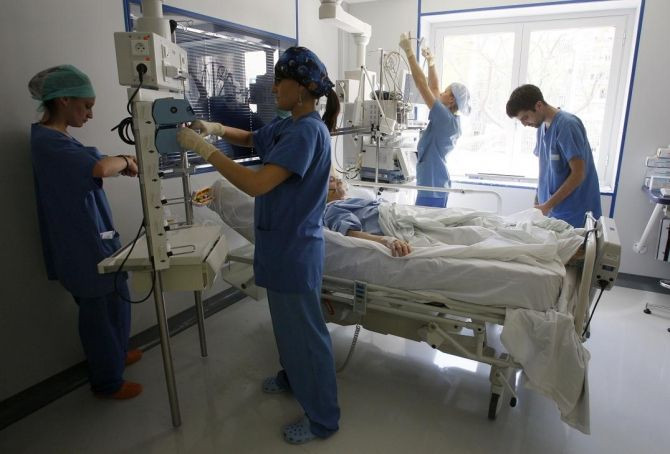Doctors, Nurses Struggle with Personal Morals in the ICU

Nurses and physicians often face a clash between personal beliefs and professional responsibilities during tense situations in intensive care units, causing distress and leading to burnout, according to a new study.
Ruth D. Piers, M.D., of Ghent University Hospital, Gent, Belgium, and colleagues set out to determine the prevalence and characteristics of perceived inappropriateness of care among clinicians in ICUs. In May they evaluated clinicians from 82 adult ICUs in 9 European countries and Israel.
The study was published in Wednesday’s issue of the Journal of the American Medical Association,
In total, 1,953 ICU nurses and physicians providing bedside care were surveyed regarding perceived inappropriateness of care, defined as a specific patient-care situation in which the clinician acts in a manner contrary to his or her personal and professional beliefs, and 27 percent reported perceived inappropriateness of care in at least one patient.
“Perceived inappropriateness of care is common among nurses and physicians in ICUs and is significantly associated with an intent to leave the current clinical position, suggesting a major impact on clinician well-being,” wrote Dr. Piers.
The most common reported cause for moral distress was a perceived disproportionate care, mostly due to a perception of excessive treatment and the feeling that other patients may benefit more from ICU care than the present patient.
The study identified methods for curbing the distress, including decisions about symptom control shared by nurses and physicians as opposed to being made by the physicians only, involvement of nurses in end-of-life decisions, and overall good collaboration between nurses and physicians.
The challenge for ICU managers is "to create ICUs in which self-reflection, mutual trust, open communication, and shared decision making are encouraged in order to improve the well-being of the individual clinicians and, thereby, the quality of patient care,” wrote Dr. Piers.
In an accompanying editorial, Scott D. Halpern, M.D., Ph.D., of the University of Pennsylvania, Philadelphia, writes that "although the report by Piers et al provides a hazy lens through which to view appropriateness of care, it yields more clarity than prior studies."
"Thus, the greatest contribution of [this study] may be to provide the clarion call needed to spur more rigorous study of what happens to clinicians and the care they provide when requests for care do not resonate with clinicians' conceptions of appropriateness. Such clinician-centered outcomes research, in other words, may usefully supplement the patient's perspective in gauging the quality of health care delivery."



























